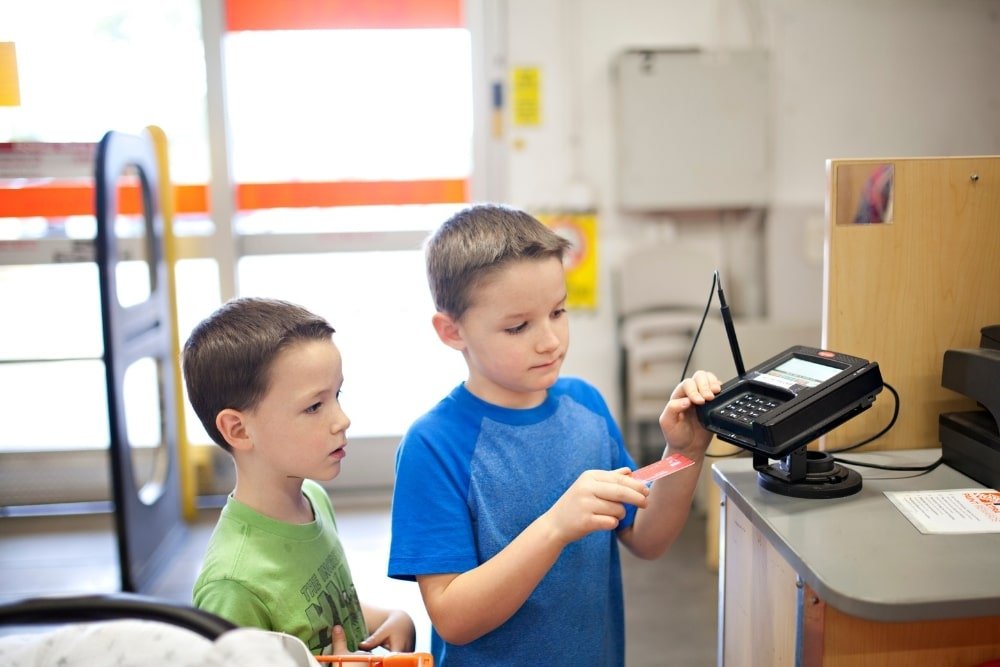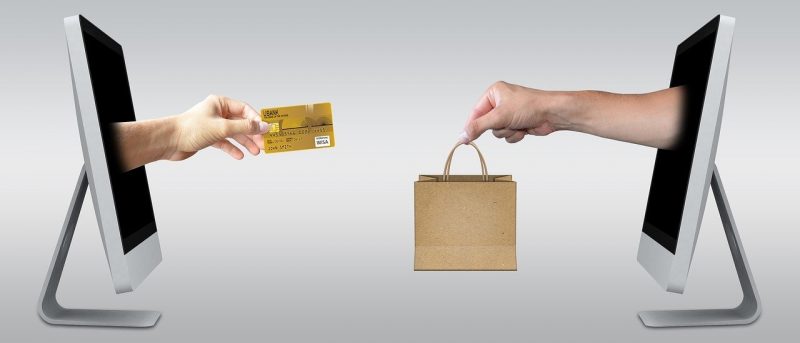According to current laws, you cannot get a credit card using a child’s name. This doesn’t vary by state law. It’s a national law.
Children under the age of 18 cannot enter into a legally binding contract in the United States, and credit cards require signing one of those. Loans also require a legally binding contract.
Credit Card For Child Under 18
Unfortunately, even if you’re an honest parent that wants to help your child build some credit, you cannot get a credit card for a child under 18. This is simply not an option.
Children under 18 have a few limited options when it comes to having a credit card. Which one you choose depends on why you want to get a credit card for a child under 18.
Helping A Child Learn Financial Responsibility
Although it can be tempting to open a credit card in your teen’s name to help them learn financial responsibility, this isn’t always the way to go. However, those that are trying to teach their kids financial responsibility have a few options.
Bank Account/Debit Cards Help Children Learn Financial Responsibility
Children that have a bank account can learn how to save and make money. Instead of their money simply sitting around the house, they’ll be able to earn money off their savings.
This helps them learn how interest works and how nice it is to make money. It’s always good to instill a good work ethic when you can.
Younger children can learn how to use a debit card with supervision. Older ones can have their own debit card, and enjoy being able to use it for things like online shopping, etc.
This gives them the independence that teenagers need while simultaneously helping them learn how to manage money.
View in gallery
Include Them In Your Finances To Model Financial Responsibility
Teaching children about finances can be as simple as including them in your finances. For example, show them how much you save out of each paycheck.
Teach them the benefits of paying bills on time. Inform them of the consequences of being financially irresponsible.
Children won’t learn a lot when you simply tell them about financial matters. However, they’ll learn a lot about finances when you do them together as a team.
Teach Children Financial Responsibility By Taking Them Grocery Shopping
The grocery store is a great way to teach your little one about money. As you’re grocery shopping, explain the grocery budget. Tell them why you buy certain brands, and how you save money on buying other brands.
You can also point out the cost of one product versus another product. Then, remind them of how much money you’re saving by buying an off-brand instead of a name brand.
Forty cents won’t sound like a lot, but you can avoid the eye rolls when you show them the total amount you save if you save forty cents every time you go to the store.
Another great option is to keep a running total of how much you save during the trip to show them how all those little amounts add up to a larger amount.
Adding Child To Credit Card To Build Credit
You might not be able to go sign your little one up for a credit card of their own, but you can make them an authorized user on your credit card. There are several benefits that your child can enjoy just from being an authorized user, such as:
- Build credit
- Establish a credit file
- Better opportunities later down the road (better deals on mortgages, loans, etc.)
- Learning money management
Adding your little one as an authorized user can help them later on down the road, but there are only certain credit card companies that allow this. Some credit card companies require that authorized users be at least 18 years old.
Other companies set a minimum age limit. For example, American Express requires that an authorized user be 13. Discover, however, upped the age limit to 15 years old. US Bank has a slightly higher age limit at 16 years old.
There are a few credit card companies that will let you add an authorized user of almost any age as they have no age requirement listed. These include:
- Bank Of America
- Chase
- CitiBank
- Wells Fargo
If you’re looking to build your child’s credit at a younger age, opt for the credit cards listed above. These will help your little one get a head start on the benefits of being financially responsible.
They are the best options when considering adding a child to credit card to build credit.
Things Parents Should Consider Before Adding Child To Credit Card To Build Credit
Being an authorized user on your credit card will help your child in the long run. Yet, there are a few things that parents need to consider before adding their child as an authorized user.
Keeping these things in mind will guarantee that it benefits your child, and doesn’t hurt you in the process.
Every Purchase Is Okay
View in gallery
If your little one accidentally blows a few hundred on online games, there is no going back. You cannot say that is was an unauthorized purchase because your little one is an authorized user.
To prevent this:
- Don’t give your child their own credit card until they are financially responsible
- Set spending limits on the credit card
- Set up online notifications for the card (this will alert you when they spend a bit more money than you anticipated)
These can help you know when something happens. You’ll also have the opportunity to prevent overspending by setting spending limits.
You Can Hurt Your Child’s Credit
If your child is an authorized user on your credit card, the activity will go on their credit report. Things like credit card usage can also affect their credit report.
That means that you use a significant amount of the money available, this high usage will be seen on your child’s credit report. The same goes for anything else that can cause negative remarks on a credit report. Things that cause derogatory marks include:
- High usage (maxing out credit cards)
- Not making payments on time
- Charge offs
When your child is an authorized user on your credit card, make sure that you are also responsible to avoid hurting their credit instead of helping it.
So, Can I Get A Credit Card In My Kid’s Name?
Legally, you cannot. If you choose to do so anyway, you can face criminal charges. Your own child can press charges on you when they reach 18 years of age if they find out.
However, there are wonderful alternatives available to help your child get a head start on being financially responsible, such as adding a child to a credit card to build credit.






